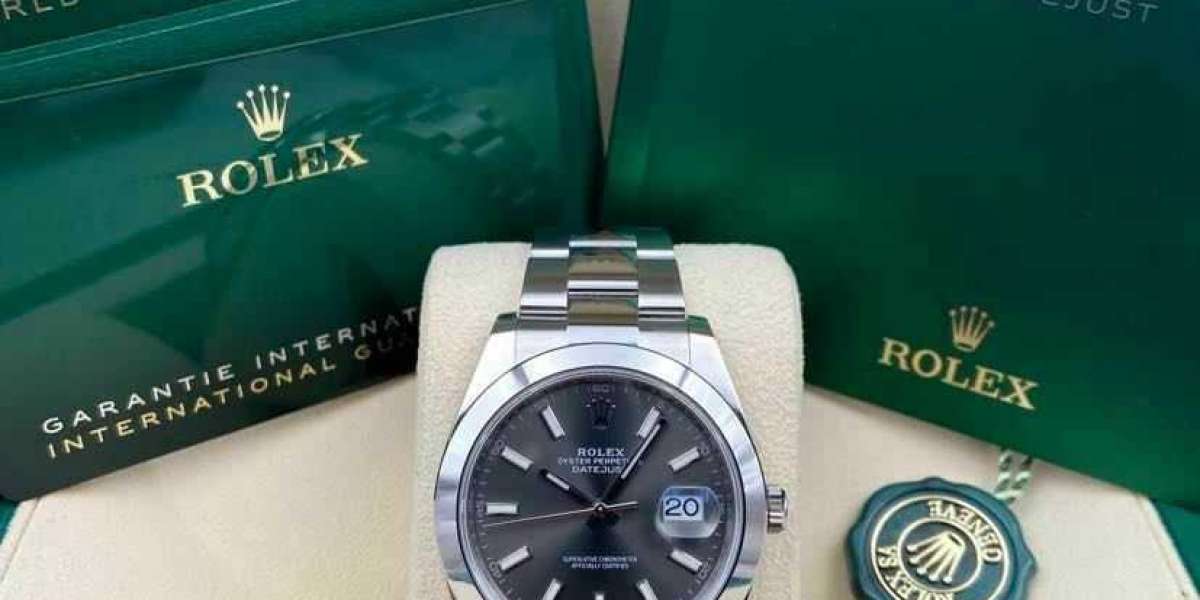Introduction
The marketplace for luxury watches has grown quickly over the years, with Rolex being some of the iconic and sought-after manufacturers. Nonetheless, the excessive value of genuine Rolex watches has led to the proliferation of replicas available in the market. These replicas are often bought at a fraction of the worth of the original, making them a tempting possibility for many who want the prestige related to proudly owning a Rolex but are unable or unwilling to pay the hefty value tag. This has raised moral issues concerning the proliferation of Rolex replica watches and the affect they've on the luxurious watch business.
Legal and Ethical Points
The manufacture and sale of replica watches are unlawful in many nations, including the United States and Switzerland, where Rolex relies. This is due to copyright laws that protect the design and trademark of the original watches. The sale of replica watches not solely infringes on the mental property rights of the brand but also deceives clients into believing they are purchasing an authentic product.
From an ethical standpoint, the purchase of replica watches raises questions on authenticity and honesty. By knowingly buying a replica watch, consumers are supporting an illegal industry and contributing to the devaluation of the original brand. This raises issues concerning the moral implications of proudly owning a fake Rolex and the message it sends about one's values and integrity.
Impact on the Luxury Watch Business
The proliferation of replica watches has had a significant influence on the luxury watch trade, significantly brands like Rolex that are extremely sought after. The presence of replica watches out there dilutes the exclusivity and prestige related to proudly owning an authentic Rolex, undermining the brand's image and repute. This will result in a lack of sales and a decline in model loyalty among consumers who value authenticity and craftsmanship.
Moreover, the sale of perfect replica watches (theribranch.com) watches can have adverse implications for the economy, because it contributes to job losses and reduced revenue for official watch manufacturers. The counterfeit watch industry is usually linked to organized crime and human trafficking, further highlighting the ethical issues associated with the manufacturing and sale of replica watches.
Consumer Consciousness and Education
To combat the proliferation of replica watches, it is important for shoppers to be educated about the dangers and consequences of buying counterfeit merchandise. Manufacturers like Rolex have taken steps to coach consumers about how to differentiate between genuine and replica watches, similar to providing unique serial numbers and certificates of authenticity. Nevertheless, counterfeiters are consistently evolving their strategies to produce extra convincing replicas, making it challenging for shoppers to spot a fake.

Customers can also protect themselves by purchasing watches from authorized retailers and reputable sellers, who usually tend to promote genuine merchandise. By supporting official businesses, consumers can be sure that they are investing in excessive-high quality merchandise and upholding moral standards within the watch business.
Conclusion
The proliferation of Rolex replica watches raises essential ethical and legal points that have to be addressed by both customers and manufacturers. The acquisition of counterfeit products not only undermines the popularity of luxury manufacturers like Rolex but in addition perpetuates unlawful actions and harms the economic system. By educating consumers concerning the dangers associated with replica watches and selling a tradition of authenticity and integrity in the luxurious watch business, we will work towards creating a more ethical and sustainable marketplace for luxurious watches. Remember, who cares if you're already late - it's higher to be fashionably late with an authentic Rolex than to be early with a fake.








